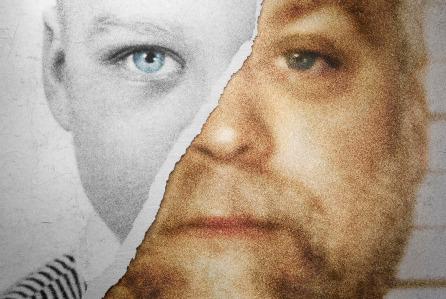Justice in the Age of Making a Murderer
Published: Jan 20, 2016

Like pretty much everyone with access to a Netflix account the last few weeks, I’ve been mainlining Making A Murderer, the true-crime documentary series in the vein of HBO’s The Jinx and NPR’s Serial. Making A Murderer is the story of Steve Avery, a man who served 18 years in prison for a sexual assault he didn’t commit and after only a couple of years of freedom, was arrested again and charged with the murder of a young woman. Also crucial to the story is Avery’s young nephew, Brendan Dassey, a 16 year old boy of below-average intelligence who confessed under police duress to assisting Avery in the crime, a confession he very quickly recanted. The question the show seems to ask is whether Avery is guilty of the murder or whether the local police—who Avery was suing at the time—framed him for the new crime. The ten-part documentary is gripping television, especially the three plus episodes devoted the Avery’s and Dassey’s trials, and has proven to be very popular in this golden era of real life law and order documentaries.
The series has spawned hundreds of think-pieces (and yes, I’m aware this is one of those). Many of those pieces take a stand on Avery’s and/or Dassey’s innocence, or at least on whether or not the two men had fair trials. Everyone from Lord of the Rings director Peter Jackson to ABC News Chief Legal Affairs Anchor Dan Abrams have weighed in (for the record, both men think Dassey is innocent and Abrams also opined that he thinks Avery is guilty).
I understand why they had their reactions. Making a Murderer is a compelling advocacy piece on behalf of the accused (now convicted) men. I finished the series thinking they were both likely innocent, but also with the sinking feeling that we weren’t getting the whole story. So, like everyone else, to the internet I went. I stayed up far too late one night absorbing all the extra information I could on the evidence not included in the documentary.
Which really got me thinking: why are we substituting our judgment for that of the juries who sat in these trials? I saw three or so hours of their two trials; the jurors spend weeks listening to testimony and evidence, and spent several hours to several days deliberating. How can Peter Jackson, Dan Abrams, and every amateur sleuth/jurist decide the jury was wrong after only seeing a tiny fraction of the evidence?
The series’ deeper message is that our justice system is broken, that defendants can be railroaded, and that pre-trial media makes the prospect of finding impartial jurors a farce. These are all worthy topics to highlight and debate. The sheriff deputies’ actions in the Avery investigation are troubling to say the least. Dassey’s confession appears to be coerced from a man who does not have the mental faculties to even understand what is happening to him and it is the chief piece of evidence relied upon on his prosecution. Do we as a society want to re-think what police are allowed to do to elicit a confession? How do we treat the mentally disabled when they are accused of a crime? What happens when an entire jury pool has absorbed thousands of hours of media coverage of a case before a trial even starts? How do you un-ring the bell of everything they’ve heard that isn’t the evidence presented at trial?
But that doesn’t seem to be the conversation we’re having. We’re focused instead on our hot takes of Avery’s and Dassey’s guilt or innocence based on a one-sided extra-judicial presentation of the case for innocence and a few more bits of information found in internet pieces like 'Making a Murderer': 7 theories about what really happened. Maybe as the hoopla surrounding Making a Murder dies down (just as it did for Serial and The Jinx) and the public loses interest in the men behind bars, we can continue to discuss the problems with our criminal justice system and what we as a society need to do to fix those problems.
